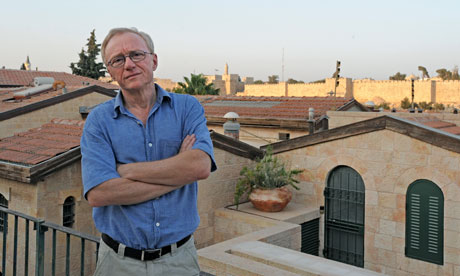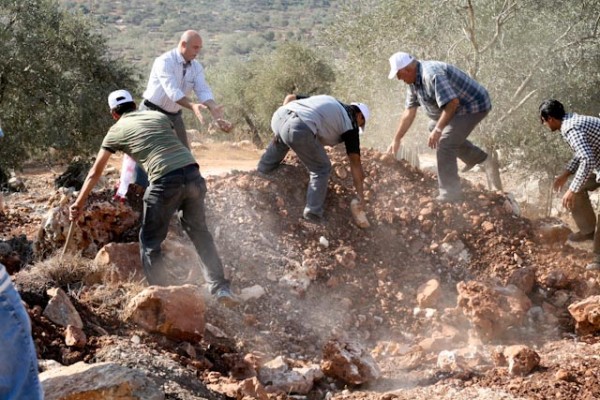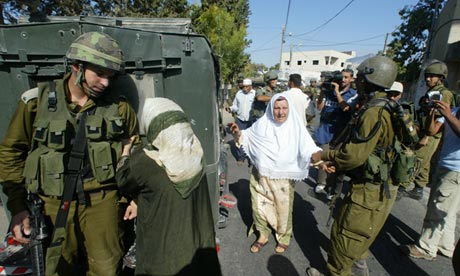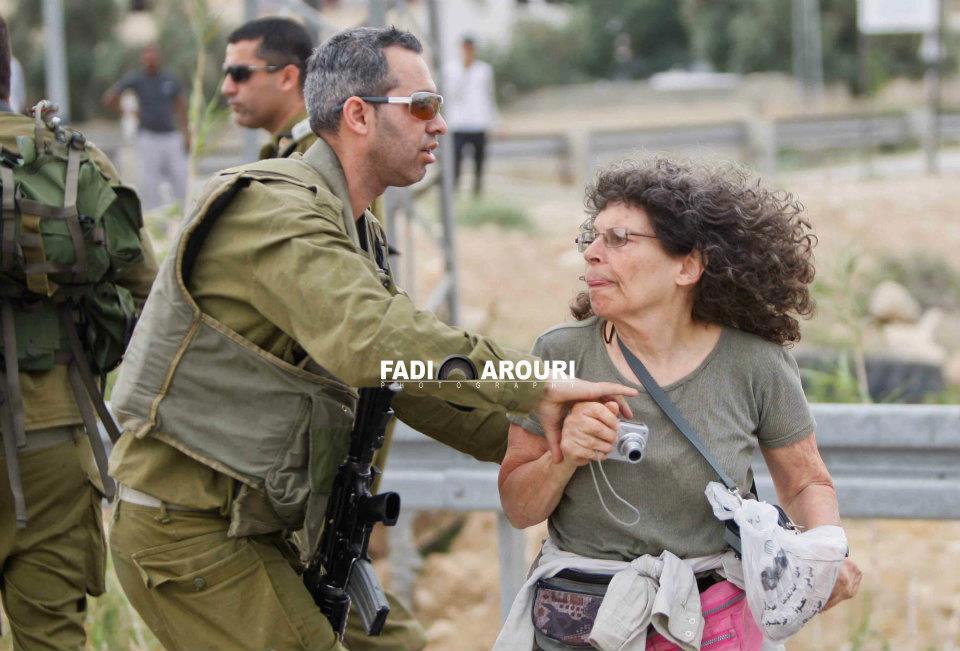David Grossman endorses B'Tselem's camera campaign

David Grossman in Jerusalem. Photo by Ahikam Seri/Panos Pictures
A special message from David Grossman,
December 5. 2012
Dear Friends,
We in Israel are facing a real crisis. Israel’s occupation of the West Bank appears unending while the Gaza Strip grows more isolated and impoverished. The recent fighting in the Gaza Strip and southern Israel, with millions of civilians on both sides paying such a heavy price, only emphasized how far we are from negotiations to resolve this situation. More than four million Palestinians live without the basic rights we in Israel take for granted. While they live only a few miles away, they are separated from us by physical obstacles as well as mental barriers of fear and prejudice.
In this reality, it is inspiring to see the work of groups like B’Tselem – Israelis who share my conviction that protecting human rights is both necessary and possible. B’Tselem has championed human rights for decades, developing powerful ways to turn research into advocacy and action. And I am grateful for their work.
If you are like me, you go to B’Tselem to receive reliable information and thoughtful analysis on the human rights situation in the Occupied Territories. It is information compiled by Israelis committed to universal values of justice who also care deeply about Israeli democracy and share your concern for Israel’s future. Their information fuels profound and necessary discussions on television talk shows, in newspaper columns and at dinner tables and coffee shops across Israel – and challenges our policymakers in the corridors of power.
B’Tselem is not afraid to be bold – from distributing cameras to Palestinians living near the most militant settlements to demonstrating why sections of the Separation Barrier must be dismantled. B’Tselem does not shy away from the issues our politicians prefer to ignore. This is a lesson for us all – it is not simply about politics or timing. It is about human equality, about ending violence, promoting dignity for all people and giving our neighbors freedom and respect.
The fact that the occupation has continued for forty five years is infuriating and outrageous. I personally do not understand how a country can regard itself as a democracy while maintaining a prolonged regime of occupation, repression and discrimination with no apparent intention of ending it. Sadly, we cannot end the enormous injustice that is the occupation in the near future. B’Tselem holds fast to the vision of an end to the occupation and works toward this goal. It also addresses the injustices, big and small, the localized abuses and the arbitrariness that disguise and justify themselves with countless methods and excuses. All of this B’Tselem exposes and battles against tirelessly.
B’Tselem’s work is a real source of pride and I hope you will join me in supporting their efforts to ensure the dignity of all human beings. Their work gives us cause for hope, that in spite of so many obstacles, Israelis and Palestinians can build a better future.
Sincerely,
David Grossman
International Solidarity Movement volunteer tries to prevent soldier seizing her camera See here for a series of photos of the IDF attacking the ISM bike ride.

Photograph taken by ISM volunteer Vicky Blackwell showing the people of Jamma’in removing the roadblock put down by the IOF to stop them reaching their olive trees.
Israeli Military Must Permit Video Documentation in Occupied Territories and Conduct Investigation of Attack on Photographers
Media release, B’Tselem
December 18 2012
B’Tselem wrote to OC Central Command Major General Nitzan Alon requesting that he issue an immediate notice to Israeli security forces in Hebron, reminding them that B’Tselem employers and volunteers as well as any other photographers must be permitted to document events in the city. B’Tselem also requested that the Israeli military take action against the soldiers who attacked the photographers and disrupted media documentation.
B’Tselem’s letter was written in light of an incident in which Israeli soldiers attackedReuters’ photographers in Hebron, stripped them and threw tear gas canisters at them.Media accounts report that the soldiers “accused” the journalists of working for B’Tselem. On the same evening in which the press photographers were reportedly attacked, Israeli soldiers assaulted a B’Tselem volunteer videographer, who was detained on the pretext of attacking soldiers. He was taken to the Hebron police station and released in the early morning hours. He required medical attention, and upon his release was taken by ambulance to a Hebron hospital.
In the letter, B’Tselem Executive Director Jessica Montell wrote that such incidents are not uncommon and that B’Tselem’s volunteers and fieldworkers continue to report instances in which Israeli security forces prevent them from filming, detain them for hours and confiscate cameras. These actions blatantly disregard both the law and the assurances that B’Tselem has received from the Israeli military and Border Police. Israeli security forces have asserted that there is nothing to hinder B’Tselem employees and volunteers from photographing and filming incidents in the Occupied Territories as long as they do not interfere with security forces operations.
In recent years, video documentation of human rights violations in the territories has become one of the most effective tools for safeguarding human rights. Video documentation lends corroboration to Palestinians’ claims of rights breached, provides evidence for criminal investigations and illustrates the harsh reality of life under occupation. Finally, since the launching of the B’Tselem camera project, which distributes video cameras to Palestinians living in high-friction areas, especially in Hebron city Center, experience shows that the presence of cameras often helps to defuse situations and prevents needless violence.

[Still from 5 Broken Cameras, a documentary by Emad Burnat and Guy Davidi, capturing Emad Burnat’s mother pleading for the release of his brother, Khaled, who has just been arrested. The renowned film is one of many examples of the power of the recording camera. See The movie that shows that non-violence is not an option for Palestinians about the film made by a Palestinian and an Israeli recording IDF attacks.]

